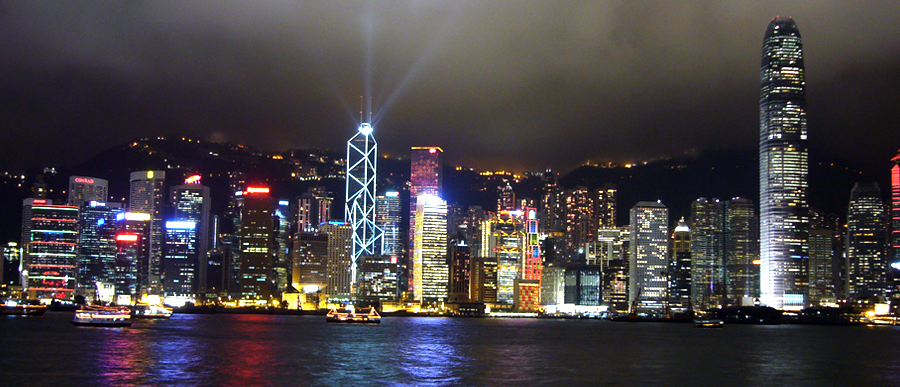
Situated on the southeast coast of China, Hong Kong’s strategic location on the Pearl River Delta and South China Sea makes it one of the world’s most cosmopolitan cities. From humble beginnings as a fishing village and trading ground, it evolved over the centuries to become a military port of strategic importance and eventually an international financial centre.
Although archaeological findings suggest that the island was populated by humans around 30,000 years ago, very little is known of Hong Kong until it came to the attention of Imperial China in 214 BC. Prior to the Qin Dynasty, the area was populated by non-Chinese tribes known as the Yue People. Shortly after consolidating his rule over China in 221 BC, the first Chinese emperor Qin Shi Huang sent a 500,000 to conquer the Yue tribes; by 214 BC, the area now known as Hong Kong was annexed as Chinese territory; subject to imperial rule, Hong Kong experienced a boom in trade and immigrant migration and, as a military outpost and trading port, it quickly gained the attention of the world.
By the early 19th Century, the British Empire was heavily dependent on the importation of tea from China. Although the British exported luxury items such as clocks and watches, there remained an overwhelming imbalance in trade and tea and other ‘vital goods’ quickly became too expensive. The counter balance came in the form of the illegal export of opium from India. China greatly opposed this trade – opium was banned in China (despite being used in medicine for thousands of years)
but the British found ways to flaunt the law; business was booming, resulting in a devastating social impact. A war on drugs was declared in 1839 by Emperor Daoguang who seized up to two million pounds worth of opium; but as the drug was an important facet of British Indian economy, it was not long before the government sent in the navy. Warships arrived in China in 1840, and over the next two years completely shattered the Chinese empire.
In August 1842, the Chinese signed what became known as “the unequal treaty”; they agreed to open five ports to foreign trade and pay 21 million silver dollars to the British Government – although for the British, the unrivalled highlight of the deal was the acquisition of Hong Kong. The island was seen as a vitally important centre of international trade; the arrival of immigrants in large numbers helped launch a new role for Hong Kong as a major manufacturing hub. Hong Kong became a Special Administrative Region of the People's Republic of China on 1 July 1997, allowing the city a high degree of autonomy, including retaining its capitalist system, independent judiciary and free trade. An exploration of Hong Kong’s history can give the impression that it is in a constant state of change; however; despite its turbulent past, it has managed to retain an energetic spirit, one that transformed a small group of quiet fishing villages into a powerhouse of international trade with unrivalled potential.
Great travel articles as well as deals, all sent directly to your inbox. Sign up today!
